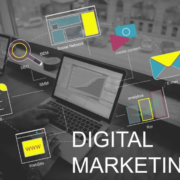Why We Replaced Ad Hoc Campaigns with a Full-Service Digital Marketing Company
When we first launched our product, digital marketing seemed simple enough. We had a few internal people running search ads, posting on social media, and sending out newsletters. Campaigns were pieced together quickly, some worked, most didn’t, and we told ourselves that was part of the learning curve.
But as our business grew, the cracks in our marketing efforts became more visible. Campaigns lacked consistency, our brand message felt fragmented across platforms, and there was no clear way to measure whether what we were doing was truly helping the business grow.
It was only after we brought in a full-service digital marketing company in St. Louis that we realized just how much opportunity we were leaving on the table.
Here’s what we did and why I’d recommend making this shift earlier than we did.
What We Struggled With Doing Marketing In-House
The Problem with “Just Running Campaigns”
Like most growing companies, we were focused on execution. That meant launching promotions, tweaking Google Ads headlines, and posting on LinkedIn because “we needed to be active.” But we didn’t have a unified strategy.
Looking back, the issues were clear:
- We were optimizing in silos, paid search was separate from email, which was separate from content.
- Messaging changed depending on who created the asset that week.
- Reporting was surface-level impressions, clicks, open rates without tying it back to revenue or leads.
- Our internal team was stretched thin, mostly reacting to sales needs or fixing underperforming campaigns.
Without realizing it, we were spending real budget and effort on disconnected tactics. It was the lack of a coordinated, scalable system for growth in our team and business.
Why We Considered a Digital Marketing Company
At a certain point, we had to step back and ask: “What is our marketing system actually built to do?”
We realized we had no:
- Clear funnel strategy from awareness to conversion.
- Testing methodology for improving results.
- Unified content calendar or creative direction.
- Channel-level accountability tied to pipeline or sales outcomes.
We started looking for a digital marketing company not just to “run ads” or “write blogs,” but to rebuild our entire marketing function with a long-term view.
The goal was simple: replace scattered execution with strategic performance.
What We Looked for in a Partner
We didn’t want another agency that would send us monthly reports filled with CTR and CPC charts without context. We needed a partner who could:
- Understand our product, market, and buyer journey.
- Create integrated campaigns across paid, organic, and email.
- Own testing and optimization frameworks.
- Be accountable for business metrics, not just ad metrics.
The digital marketing company we chose offered all that and one critical factor: they built systems that our internal team could eventually own.
What Changed After Bringing Them On
The first 30 days were spent purely on alignment. They audited our CRM, campaign data, existing content, and analytics tools. Then they helped us map out our customer journey and define core conversion goals by stage.
Here’s what changed in the next 6 months:
- We moved from “one-off campaigns” to structured initiatives
They rolled out 90-day campaign cycles, with unified messaging across paid ads, email sequences, and landing pages. Each campaign had a goal, a target audience, and a documented hypothesis.
- They took over performance monitoring
Every channel had a live dashboard tracking the right metrics: MQLs, demo requests, cost per qualified lead, not just impressions or followers.
- They improved our creative output
With a design and content team in-house, they built polished ad creative, landing pages, and emails that matched our brand, and performed better than what we were producing internally.
- They built a testing and learning loop
We didn’t just launch ads, we tested variants, captured insights, and applied them across campaigns. That loop made every future campaign smarter.
- They trained our internal team
As they scaled campaigns, they shared playbooks and frameworks that helped us level up in-house skills, something we hadn’t expected but greatly appreciated.
The Business Impact
The difference was measurable:
- Our lead volume increased 47% while cost per lead dropped
- We started converting more leads into demos thanks to tighter funnel alignment
- Our email marketing open and click rates improved after restructuring our nurture sequences
- The marketing team finally had space to think strategically instead of putting out fires
Why the Shift Was Worth It
Hiring a digital marketing company wasn’t about outsourcing. It was about building a system that could grow with us.
If you’re still running disconnected campaigns, relying on freelancers, or trying to do everything in-house, it’s likely you’re working twice as hard for half the return.
A good digital marketing partner doesn’t just give you execution, they bring structure, focus, and accountability.
They help your team stop guessing and start growing.
Closing Thoughts
In hindsight, we didn’t need more ads, blogs, or posts, we needed a coordinated strategy that connected everything we were doing into a single customer journey.
Partnering with a full-service digital marketing company in St. Louis helped us bridge that gap. It gave us confidence that every campaign had a purpose, every channel had a goal, and every dollar spent had the chance to drive real results.
If you’re at the stage where growth is plateauing or marketing feels reactive, it may be time to stop managing tactics, and start building a system.
That’s the shift we made. And it made all the difference.

